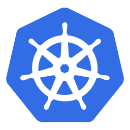AWS: CDK and Python – configure an IAM OIDC Provider, and install Kubernetes Controllers0 (0)
22 July 2023
So we have an AWS EKS cluster built with AWS CDK and Python – AWS: CDK and Python – building an EKS cluster, and general impressions of CDK, and we have an idea of how IRSA works – AWS: EKS, OpenID Connect, and ServiceAccounts. The next step after deploying the cluster is to configure the OIDC… Read More »
![]()





